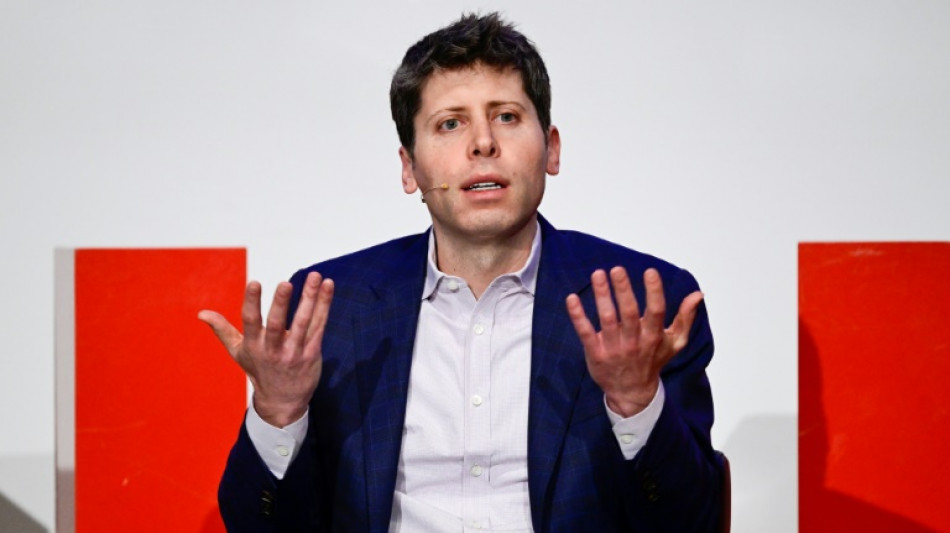
Apple design legend Jony Ive joins OpenAI

The legendary designer behind Apple's iPhone, Jony Ive, has joined OpenAI to create devices tailored for using generative artificial intelligence, according to a video posted Wednesday by the ChatGPT maker.
Ive and his team will take over design at OpenAI as part of an acquisition of his startup named "IO" valued at $6.5 billion.
Sharing no details, OpenAI chief executive Sam Altman said in the video that a prototype Ive shared with him "is the coolest piece of technology that the world will have ever seen."
The San Francisco-based AI company finished the clip with a message that it looks forward to sharing fruits of the device collaboration next year.
British-born Ive was an Apple employee from 1992 to 2019, during which time he oversaw the development of the brand's now legendary products, from the iMac and AirPods to the iPod, iPhone and Apple Watch.
Working closely with Apple co-founder Steve Jobs, his designs revitalized Apple, making it the company with the world's third-largest market capitalization and a global standard for product design.
Altman said a transformational new technology such as AI deserves a revolutionary new way to interact with it.
Comparing AI to "magic intelligence," Altman said the technology behind ChatGPT "deserves something much better" than having to type questions into a laptop.
Ive began collaborating with Altman two years ago and it "became clear that our ambitions to develop, engineer and manufacture a new family of products demanded an entirely new company," the pair said in a joint post.
"The products that we're using to deliver and connect us to unimaginable technology are decades old," Ive said.
"So it's just common sense to at least think, surely there's something beyond these legacy products."
- Dethroning smartphones? -
OpenAI putting its hot chatbot into a new kind of gadget could be a threat to Apple, which has struggled with its AI strategy, particularly when it comes to making its Siri digital assistant smarter.
Apple shares were down nearly three percent in after-market trades on Wednesday.
Almost a year after announcing the integration of a host of generative AI functionalities into its new iPhone 16, Apple has been slow to implement them.
The Cupertino, California-based group has also postponed the release of an updated version of its Siri voice assistant until next year, at best.
The race to put generative AI into devices also involves Amazon, which is adding the technology to its Alexa voice assistant, with a rollout of that service currently underway.
Dubbed Alexa+ and boosted with AI, Amazon's adoption of the technology is intended primarily for connected devices in the home, such as smart speakers or televisions.
Hyped startup Humane in 2024 launched its AI Pin, a square gadget to be worn like a brooch that was theoretically capable of answering spoken questions, taking photos, and making phone calls.
But it quickly failed to catch on due to its high price and poor performance, and was subsequently acquired at a low price by HP.
IDC advertising and marketing technology research director Roger Beharry Lall said that it remains to be seen if a gadget dedicated to using AI can dethrone smartphones that still rule modern lifestyles.
"Right now, the phone is the medium through which you can access these technologies," Beharry Lall said.
"If anyone can figure out what the next-generation interface is going to look like, it's probably Mr. Ive."
OpenAI has become one of the most successful companies in Silicon Valley, propelled to prominence in 2022 with the release of ChatGPT, its generative AI chatbot.
F.Kang--SG

 London
London

 Manchester
Manchester
 Glasgow
Glasgow
 Dublin
Dublin
 Belfast
Belfast
 Washington
Washington
 Denver
Denver
 Atlanta
Atlanta
 Dallas
Dallas
 Houston Texas
Houston Texas
 New Orleans
New Orleans
 El Paso
El Paso
 Phoenix
Phoenix
 Los Angeles
Los Angeles



